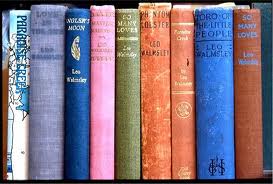To be sure, India is one of the easiest places in the world to see the dichotomy of society into rich and poor.
This book wanders around this dichotomy in a pondering and not so orderly fashion. Aside from pointing out the differences, I could not find much of a point to this book.
That is not to say it isn't interesting. Deb introduces you to charaters so colorful, they sound like fiction. They are probably not the average people a westerner would run into, which makes them fascinating to me.
Verdict: Read it - good time pass.
This book wanders around this dichotomy in a pondering and not so orderly fashion. Aside from pointing out the differences, I could not find much of a point to this book.
That is not to say it isn't interesting. Deb introduces you to charaters so colorful, they sound like fiction. They are probably not the average people a westerner would run into, which makes them fascinating to me.
Verdict: Read it - good time pass.
